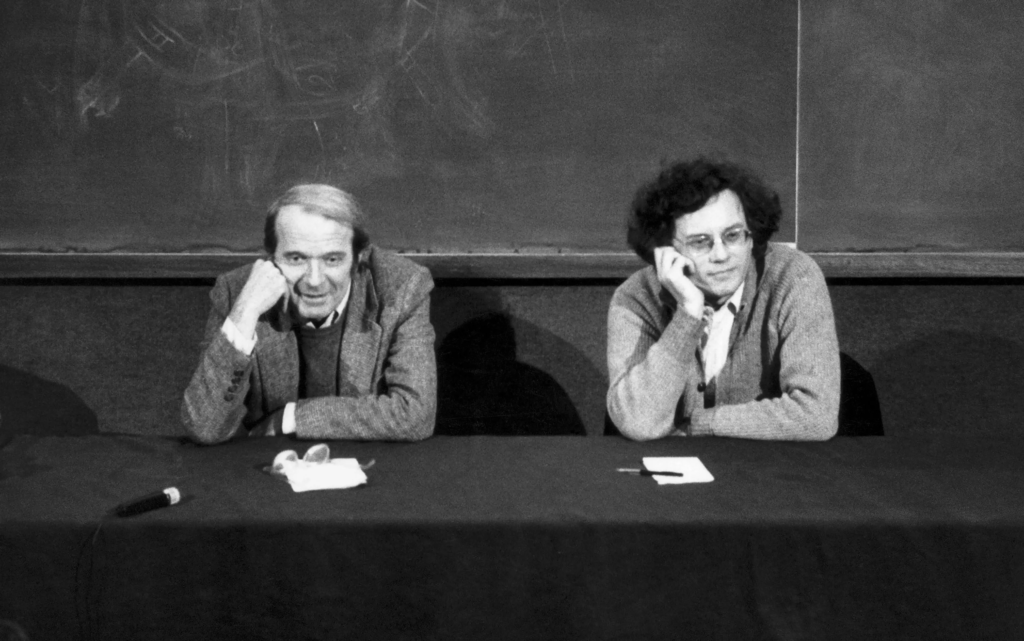
My friend Stefania, a graduate student in Latin American studies at UT Austin, asked me why she kept encountering citations of Deleuze & Guattari (D&G) in her work, which focuses on Latin America, Anzaldúa, aesthetics, and colonialism. My path to D&G was through Nietzsche, and I came to research colonialism only after training in Continental philosophy; this is to say I cannot account for my own colonialism studies appreciation for D&G. But, I have some guesses.
D&G’s most-cited work is likely A Thousand Plateaus (1980). Here is where the language of the rhizome, war machine, and body without organs appears. ATP follows Anti-Oedipus, which was published in 1972. The proliferation of concepts and neologisms that happens in AO is taken to new heights in ATP, leading to the stereotype of the made-up-word obsessed Deleuzian who clamors about the virtual and the becoming-nomad. There is a sense in which D&G are perennially cited in the service of what is typically called “Cultural Studies” disciplines by virtue of having provided a kind of conceptual toolbox. I do think there are more profound reasons.
In “Letter to a Harsh Critic” (published in Negotations), Deleuze discusses his relation to the history of philosophy. The essay gives a good hint as to what writers appreciate Deleuze for. He writes:
I belong to a generation, one of the last generations, that was more or less bludgeoned to death with the history of philosophy. The history of philosophy plays a patently repressive role in philosophy, it’s philosophy’s own version of the Oedipus complex: ”You can’t seriously consider saying what you yourself think until you’ve read this and that, and that on this, and this on that.” Many members of my generation never broke free of this; others did, by inventing their own particular methods and new rules, a new approach. I myself “did” history of philosophy for a long time, read, books on this or that author. But I compensated in various ways: by concentrating, in the first place, on authors who challenged the rationalist tradition in this history (and I see a secret link between Lucretius, Hume, Spinoza, and Nietzsche, constituted by their critique of negativity, their cultivation of joy, the hatred of interiority, the externality of forces and relations, the denunciation of power … and so on). What I most detested was Hegelianism and dialectics…
Negotiations, 5-6.
This quote also hints at a relation to the history of philosophy that many other 20th-century European thinkers did not share. Derrida is thoroughly concerned with the history of European thought; Foucault is predominantly thinking about European history. Heidegger is obsessed with the ancient Greeks. Levinas turns to Jewish thought. Althusser is rereading Marx. I wouldn’t go as far as to say Deleuze extricates himself from European history, and his work is moreover thoroughly concerned with it. I do think that he is uncomfortable with that relationship and his works with Guattari reflect a turn away from the tradition.
In addition to his relation to the history of philosophy, D&G’s book written between AO and ATP, Kafka: Toward Minor Literature, deserves mention. This shorter work discusses the concept of a minor literature, which for D&G is always written in the “major” language. Minor and major here, of course, do not refer to quantities. The concepts in the Kafka book has been one way that colonialism studies people have thought about how to think about the relationship between different languages, as well as for some of us to think about how to approach European concepts to think about non-European histories… within a European lineage.